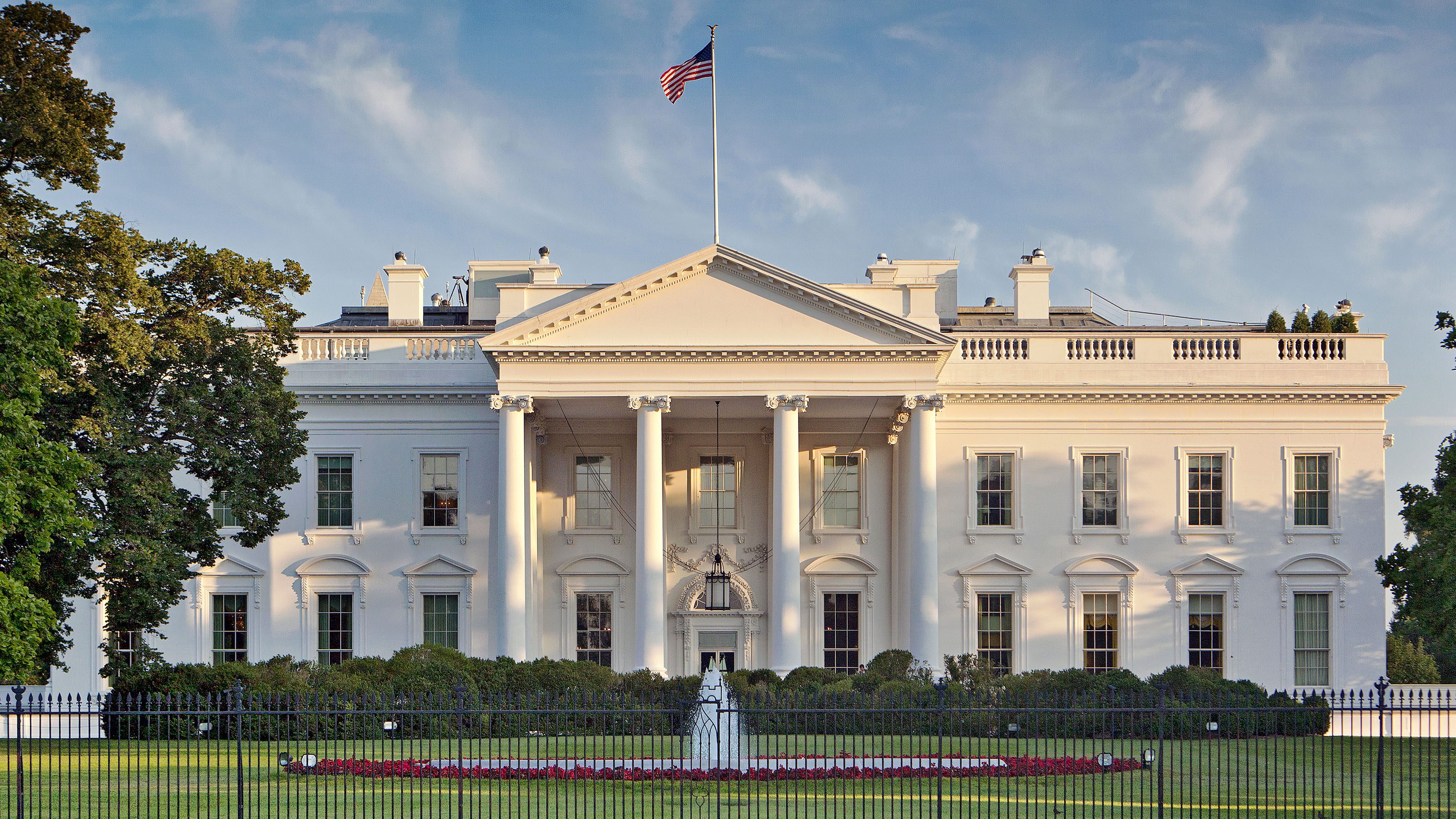Biden Signs Six-Bill Spending Package In Time To Avert Shutdown
Congress at long last agreed to final funding for six of 12 appropriations bills for the president to sign off on. It now faces a March 22 deadline for the remaining bills.


Profit and prosper with the best of Kiplinger's advice on investing, taxes, retirement, personal finance and much more. Delivered daily. Enter your email in the box and click Sign Me Up.
You are now subscribed
Your newsletter sign-up was successful
Want to add more newsletters?

Delivered daily
Kiplinger Today
Profit and prosper with the best of Kiplinger's advice on investing, taxes, retirement, personal finance and much more delivered daily. Smart money moves start here.

Sent five days a week
Kiplinger A Step Ahead
Get practical help to make better financial decisions in your everyday life, from spending to savings on top deals.

Delivered daily
Kiplinger Closing Bell
Get today's biggest financial and investing headlines delivered to your inbox every day the U.S. stock market is open.

Sent twice a week
Kiplinger Adviser Intel
Financial pros across the country share best practices and fresh tactics to preserve and grow your wealth.

Delivered weekly
Kiplinger Tax Tips
Trim your federal and state tax bills with practical tax-planning and tax-cutting strategies.

Sent twice a week
Kiplinger Retirement Tips
Your twice-a-week guide to planning and enjoying a financially secure and richly rewarding retirement

Sent bimonthly.
Kiplinger Adviser Angle
Insights for advisers, wealth managers and other financial professionals.

Sent twice a week
Kiplinger Investing Weekly
Your twice-a-week roundup of promising stocks, funds, companies and industries you should consider, ones you should avoid, and why.

Sent weekly for six weeks
Kiplinger Invest for Retirement
Your step-by-step six-part series on how to invest for retirement, from devising a successful strategy to exactly which investments to choose.
President Joe Biden signed off on a final $460 billion funding package on Saturday (March 9) that kept the government from a partial shutdown starting over the weekend.
The legislation covers six of 12 appropriations bills, covering funding through September 30, that have been caught up in a series of short-term-only funding measures since last fall. Congress now faces a second deadline on March 22 to clear the rest of the bills and avert another partial government shutdown.
The Senate passed the funding package by a 75-22 vote on Friday with just hours to go before the shutdown would begin. Earlier in the week, the House voted 339-85 to clear the package.
From just $107.88 $24.99 for Kiplinger Personal Finance
Become a smarter, better informed investor. Subscribe from just $107.88 $24.99, plus get up to 4 Special Issues

Sign up for Kiplinger’s Free Newsletters
Profit and prosper with the best of expert advice on investing, taxes, retirement, personal finance and more - straight to your e-mail.
Profit and prosper with the best of expert advice - straight to your e-mail.
"Because both sides cooperated today, we’ve taken a major step towards our goal of fully funding the government," Senate Majority Leader Chuck Schumer (D-NY) said Friday ahead of the chamber's vote. "Today’s bipartisan agreement gives us momentum and space to finish the remaining appropriations bills by March 22nd. Of course, it’s going to take both sides working together to keep that momentum alive."
This first six bills provide funding for Agriculture; Commerce, Justice; Energy; Interior; Veterans Affairs; as well as Transportation, Housing and Urban Development.
The second batch of six cover Defense; Financial Services; Homeland Security; Labor, Health and Human Services; Legislative Branch; and State and Foreign Operations.
What's at stake
A lot is at stake if Congress fails to pass the appropriations bills, including the prospect that many government operations would be forced to close or run on greatly reduced staff with limits on some public services. A government shutdown could affect you in a number ways from disrupting travel plans to stopping certain outreach programs for veterans among others.
The 12 appropriations bills
- Agriculture, Rural Development, Food and Drug Administration, and Related Agencies
- Energy and Water Development
- Military Construction, Veterans Affairs, and Related Agencies
- Transportation, Housing and Urban Development, and Related Agencies
- Commerce, Justice, Science, and Related Agencies
- Defense
- Financial Services and General Government
- Homeland Security
- Interior, Environment, and Related Agencies
- Labor, Health and Human Services, Education, and Related Agencies
- Legislative Branch
- State, Foreign Operations, and Related Programs
Consequences of a shutdown
Here’s what to know about the agencies and services that are at stake in the event of a shutdown:
- How Medicare Would Be Affected By A Government Shutdown
- A Government Shutdown Impacts Veterans In A Few Ways
- What Would a Government Shutdown Do to the IRS?
- What A Government Shutdown Means For Student Loan Payments
- How Social Security Would Be Affected By A Government Shutdown
- A Government Shutdown Could Disrupt Your Travel Plans — Eventually
- What Does a Government Shutdown Mean for Stocks?
Passage of the second batch of appropriations bills is expected to be an even tougher challenge for lawmakers than the first six were, due largely to intraparty fighting, particularly among House Republicans.
House Speaker Mike Johnson (R-LA) continues to face opposition from hard-right Republicans whose demands include deeper spending cuts and a border deal. He, once again, had to rely on Democrats to get two-thirds supermajorities to pass a series of stopgap funding measures that kept a host of federal agencies and programs running while lawmakers tried to hash out their differences.
Some of the same Republicans who helped oust Johnson’s predecessor, Kevin McCarthy, last year after McCarthy relied on Democrats to temporarily avert a shutdown, haven't changed their demands and some are even pushing for a shutdown.
“House Republicans secured key conservative policy victories, rejected left-wing proposals, and imposed sharp cuts to agencies and programs critical to the President Biden’s agenda,” Johnson said in statement ahead of the March 6 vote in the House.
RELATED CONTENT
Profit and prosper with the best of Kiplinger's advice on investing, taxes, retirement, personal finance and much more. Delivered daily. Enter your email in the box and click Sign Me Up.

Esther D’Amico is Kiplinger’s senior news editor. A long-time antitrust and congressional affairs journalist, Esther has covered a range of beats including infrastructure, climate change and the industrial chemicals sector. She previously served as chief correspondent for a financial news service where she chronicled debates in and out of Congress, the Department of Justice, the Federal Trade Commission and the Commerce Department with a particular focus on large mergers and acquisitions. She holds a bachelor’s degree in journalism and in English.
-
 Dow Adds 1,206 Points to Top 50,000: Stock Market Today
Dow Adds 1,206 Points to Top 50,000: Stock Market TodayThe S&P 500 and Nasdaq also had strong finishes to a volatile week, with beaten-down tech stocks outperforming.
-
 Ask the Tax Editor: Federal Income Tax Deductions
Ask the Tax Editor: Federal Income Tax DeductionsAsk the Editor In this week's Ask the Editor Q&A, Joy Taylor answers questions on federal income tax deductions
-
 States With No-Fault Car Insurance Laws (and How No-Fault Car Insurance Works)
States With No-Fault Car Insurance Laws (and How No-Fault Car Insurance Works)A breakdown of the confusing rules around no-fault car insurance in every state where it exists.
-
 4 Ways Washington Could Put Your Retirement at Risk (and How to Prepare)
4 Ways Washington Could Put Your Retirement at Risk (and How to Prepare)Legislative changes, such as shifting tax brackets or altering retirement account rules, could affect your nest egg, so it'd be prudent to prepare. Here's how.
-
 Trump Nominates Kevin Warsh to Fed Chair. How Will This Impact Savers?
Trump Nominates Kevin Warsh to Fed Chair. How Will This Impact Savers?Here's a look at how Warsh could influence future Fed policy if he's confirmed.
-
 The New Fed Chair Was Announced: What You Need to Know
The New Fed Chair Was Announced: What You Need to KnowPresident Donald Trump announced Kevin Warsh as his selection for the next chair of the Federal Reserve, who will replace Jerome Powell.
-
 How the Stock Market Performed in the First Year of Trump's Second Term
How the Stock Market Performed in the First Year of Trump's Second TermSix months after President Donald Trump's inauguration, take a look at how the stock market has performed.
-
 The December CPI Report Is Out. Here's What It Means for the Fed's Next Move
The December CPI Report Is Out. Here's What It Means for the Fed's Next MoveThe December CPI report came in lighter than expected, but housing costs remain an overhang.
-
 Trump Signals Plan to Ban Institutional Investors From Buying Single-Family Homes
Trump Signals Plan to Ban Institutional Investors From Buying Single-Family HomesThe president says the move could improve housing affordability. Here’s what the data show about investor ownership, recent buying trends and what it could mean for homebuyers.
-
 The November CPI Report Is Out. Here's What It Means for Rising Prices
The November CPI Report Is Out. Here's What It Means for Rising PricesThe November CPI report came in lighter than expected, but the delayed data give an incomplete picture of inflation, say economists.
-
 I'm a Government Employee and Need to Get By Until the Shutdown Ends. What Can I Do?
I'm a Government Employee and Need to Get By Until the Shutdown Ends. What Can I Do?The second-longest shutdown in history is leaving many federal workers with bills due and no paycheck to cover them. Here's what you can do to get by.